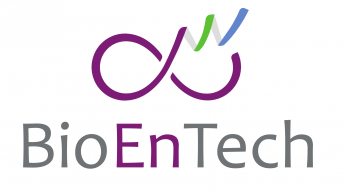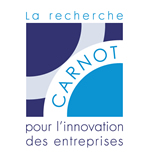A micro-lab that facilitates digester monitoring and makes local methanation more profitable
To react quickly to the changes in pH that inhibit biogas plants, BioEnTech – with help from Carnot 3BCAR – has developed a simple titration application that delivers autonomous and accurate analyses of key inhibitors. SNAC optimises oversight and performance of all manner of digesters, especially in smaller-sized facilities.
Supporting Innovation
Methanation plants that generate biogas from organic matter (local waste) play a key role in responding to environmental imperatives. The big challenge here is maintaining a constant optimal output of biogas despite variability in inputs. Naturally occurring anaerobic bacteria digest the material, however their activity depends on the acidity of the environment. Excess ammonia or volatile fatty acids will alter reactions and reduce the output of biogas, hence the need to quantify them. Until now, the plant operator had to send samples to a laboratory and – at best – results came back 24 hours later. Now, after a mere 10 minutes of straightforward manipulation, the SNAC micro-lab can deliver an accurate analysis of the main digestion inhibitors in less than two hours. Moreover, because SNAC is a connected lab, the Memo supervision system monitors process efficiency and makes suggestions for improvements in system oversight.
The client needs
BioEnTech, a mid-sized company created in 2013, was born out of the key conviction that digitised waste water and waste management will reduce the environmental impact and provide enhanced resource management.
To boost the profitability of biogas plants, measuring inhibitors during the process is absolutely essential and BioEnTech makes this possible with SNAC. By monitoring digesters, this micro-laboratory provides a unique solution that is flexible, easy to use, responsive and accurate. It is the fruit of a partnership initiated in 2013 with LBE Carnot 3BCAR based around a three-year CIFRE PhD agreement to develop a quick and simple method of analysis, combined with advanced modelling of the chemical processes involved in the titration of ammonia and volatile fatty acid concentrations. These research findings have been published internationally and are protected by a European patent.
The affordability of this disruptive innovation makes it accessible to medium-sized facilities, thus opening up a new market for BioEnTech which has sold some forty SNAC units and built a monitoring assistance service offering around the interpretation of the analyser's data.
Partnership
Carnot 3BCAR Institute harnesses multi-disciplinary skills in biotechnologies and green chemistry to develop innovative business solutions in bioenergies, biomolecules and biosourced materials. In particular, Laboratoire de Biotechnologies de l’Environnement (LBE) researches ways of recycling residues, waste and organic effluents from human activities and biomass. It uses its expertise in the reactions involved in the decomposition of organic matter to develop methods and tools for modelling these processes. It also has experimental facilities and a prototyping workshop.
LBE was therefore especially well placed to supervise the CIFRE doctoral student and to partner BioEnTech prior to the launch of SNAC, which required three development phases: research, prototyping and production roll out. Two initial prototypes were used to successfully test the product on site.
The partnership is continuing with the aim of making it even easier and faster to measure the recycling potential of a batch of organic matter in a quick, reliable and reproducible manner using the results of IR-SCAN.



